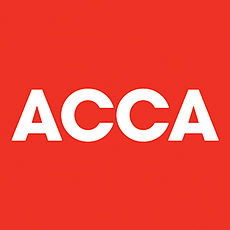- Chartered Certified Accountant
-
Chartered Certified Accountant 
Type British qualified accountants Industry Accountancy and Finance Founded [England, UK] (1904) Headquarters London, [England, UK] Subsidiaries The Association of Authorised Public Accountants (AAPA) Website www.accaglobal.com Accountancy Key concepts Accountant · Accounting period · Bookkeeping · Cash and accrual basis · Cash flow management · Chart of accounts · Journal · Special journals · Constant Item Purchasing Power Accounting · Cost of goods sold · Credit terms · Debits and credits · Double-entry system · Mark-to-market accounting · FIFO & LIFO · GAAP / IFRS · General ledger · Goodwill · Historical cost · Matching principle · Revenue recognition · Trial balance Fields of accounting Cost · Financial · Forensic · Fund · Management · Tax Financial statements Statement of financial position · Statement of cash flows · Statement of changes in equity · Statement of comprehensive income · Notes · MD&A · XBRL Auditing Auditor's report · Financial audit · GAAS / ISA · Internal audit · Sarbanes–Oxley Act Accounting qualifications CA · CPA · CCA · CGA · CMA · CAT · CFA · CIIA · ACCA · CIA · CTP · ICAEW · CIMA · IPA · ICAN Chartered Certified Accountant (designatory letters ACCA or FCCA) was historically seen as a British qualified accountant designation awarded by the Association of Chartered Certified Accountants (ACCA). However, although ACCA is UK based, it is a global body for professional accountants with 147,000 qualified members and 424,000 students globally. Support offices/centres exist in 83 countries. [1]
The term Chartered Certified Accountant was introduced in 1996. Prior to that date, ACCA members were known as Certified Accountant. It is still permissible for an ACCA member to use this term. Members of ACCA with sufficient post-qualification experience are designated Fellows, and use the designatory letters FCCA in place of ACCA.
The term Chartered refers to the Royal Charter granted by Her Majesty Queen Elizabeth II of the United Kingdom.
Subjects examined include financial accounting, management accounting, auditing, taxation, financial management, performance management, strategic management and company law.
Chartered Certified Accountants work in all fields of business and finance. Some are engaged in public practice work, others work in the private sector and some are employed by government bodies.
Since Chartered Certified Accountant is a legally protected term, individuals who describe themselves as such must be members of ACCA. If they carry out public practice engagements, they must comply with additional regulations such as holding a practising certificate, being insured against any possible liability claims and submitting to inspections.
See also
- Association of Chartered Certified Accountants
- Association of Authorised Public Accountants (Subsidiary of ACCA)
- Certified Accounting Technician (CAT - junior qualification of ACCA)
- British qualified accountants
References
External links
Categories:- Accountancy qualifications
- Accounting in the United Kingdom
Wikimedia Foundation. 2010.
